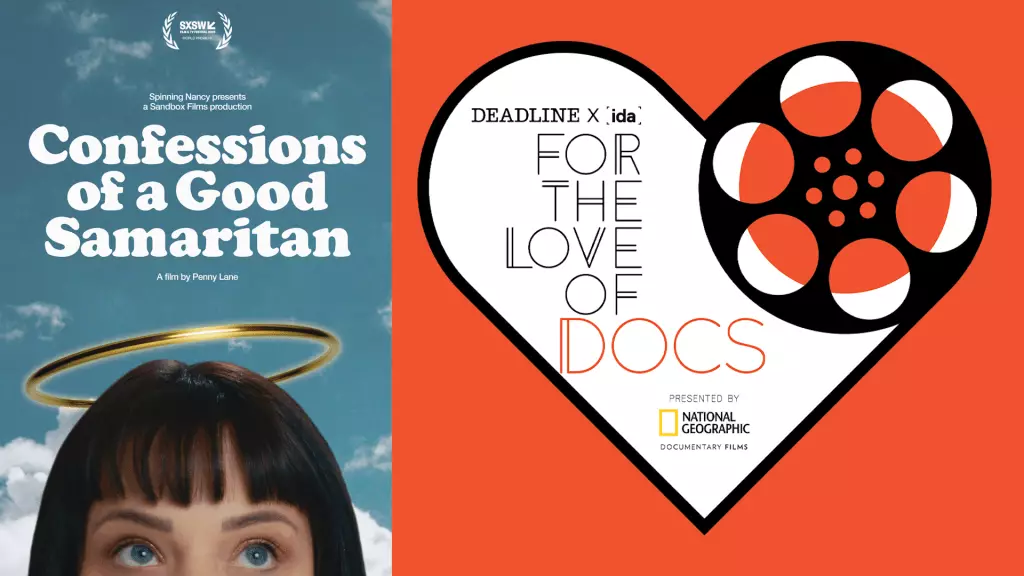The concept of civilization is often associated with technological advancements and agricultural practices. However, acclaimed anthropologist Margaret Mead proposed a different perspective. According to Mead, the earliest sign of human civilization lies in acts of empathy and altruism. She believed that the discovery of a healed broken femur from many millennia ago indicated that someone had aided the severely injured person in their recovery. Filmmaker Penny Lane resonates with Mead’s perspective. In her documentary, “Confessions of a Good Samaritan,” Lane delves into her decision to donate a kidney to a complete stranger, someone she would never meet or know. The film provides viewers with a glimpse into Lane’s introspective journey to understand her motivation behind this selfless act.
Lane takes on the role of both the filmmaker and the main “character” in her documentary. Through introspection and self-interrogation, she attempts to unravel the underlying reasons that drove her to donate her kidney. During a Q&A session after the screening, Lane shared, “The journey is very much a psychological journey for me to try to answer the question of why I was doing this and really interrogate myself about it.” She acknowledged that the decision to make herself the protagonist was essential, as she wanted to subject the donor (herself) to an intense interrogation over an extended period. Lane realized that this level of scrutiny would have been unfair to anyone else involved in the story.
Initially, Lane had no intention of documenting her kidney donation journey. However, she was persuaded by a friend who emphasized the potential to save more lives by sharing her story. Despite initial resistance, she eventually came around to the idea. Lane candidly revealed, “If I’m honest, as an artist, my goal is not to save lives. If I wanted to save lives, I would do something else with my career. Ultimately, as an artist, my job is to make art that I think is interesting and that only I can make, and it just felt like this would be interesting and only I can do it.” Thus, her decision to create a documentary about her experience stemmed from a desire to explore a unique and thought-provoking artistic endeavor.
Lane acknowledged that her kidney donation and the subsequent documentary felt like a calling. It was an opportunity that she felt compelled to embrace. Drawing a parallel between her decision and the creation of her film, Lane expressed, “It just felt like, who was I to say no… The film itself felt like a calling as much as the donation did ultimately.” This sense of purpose and personal fulfillment is palpable throughout the documentary and adds depth to the narrative.
According to the Department of Health and Human Services, only about 3 percent of kidney donations in the United States between 2010 and 2015 were considered “altruistic” or “non-directed.” Such donations refer to cases where the donor chooses to benefit a stranger whom they have no prior connection to. Essentially, these donors save lives by providing a lifeline to individuals who would not survive without a kidney transplant. While this act of selflessness is undeniably heroic, Lane consciously avoids presenting her film as a plea for her own canonization.
One of the significant challenges Lane faced during the editing process was ensuring that the documentary struck the right tone. She wanted to balance humor and cynicism while acknowledging the profound impact of her experience. Lane explained, “On the one hand, I wanted it to be funny and almost a little cynical. I sort of expect… some of the audience to come to the topic with little cynicism. So, I want to meet people where they are, but also I was like, ‘But this is amazing. This is the most profound thing I’ve ever experienced in my life.’ I don’t want to lose sight of how incredible and beautiful and fulfilling spiritually and wondrous this whole experience was.”
Penny Lane’s documentary, “Confessions of a Good Samaritan,” delves into the depths of altruism and self-discovery. Through her personal journey of kidney donation to a stranger, Lane explores the intricacies of empathy and the profound impact of selfless acts. Her decision to document this experience provides audiences with unique insights into the complexities of altruism and the personal fulfillment it can bring. While the rarity of altruistic kidney donations highlights the extraordinary nature of Lane’s story, she ensures the documentary remains grounded, striking a delicate balance between cynicism and awe. “Confessions of a Good Samaritan” serves as a testament to the power of introspection and the possibility of connecting with our humanity through acts of empathy and selflessness.


Leave a Reply